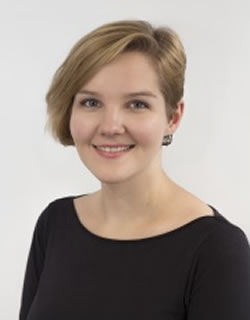Returning to STEM – because science is for everybody
This is a guest post by Gabriele Butkute, Science Policy Assistant at the Royal Society of Biology.

Gabriele Butkute
In the midst of a skills shortage in STEM we need to look carefully for potential sources of talent. One of the potential options is to access and acknowledge those who for one reason or another have been out of employment for some time but now wish to work again – the returners.
Returners to Bioscience Group at the Royal Society of Biology is a group that examines the experiences of those who face difficulties in returning to a career in the biosciences.
To mark some success stories and inspire others, we interviewed several returners who now work in a variety of fields, from forestry to virology, to share their experiences and advice. I found the interviews very personal, varied and enlightening. For example:
- George Carnell took time off to join the army,
- Emma Pilgrim and Sara Burton went on maternity leaves,
- Betina Winkler wasn’t able to get a job locally and couldn’t move due to family commitments;
- Sharon Strawbridge found herself ill; and
- Edward Wilson was affected by bereavement.
“I am inspired by this initiative as it recognises that people don’t always have conventional careers. For me, that’s a more grown up way of looking at people’s lives,” said Edward in his interview.
Then again, if so many people have career breaks, maybe we should drop the term unconventional altogether.
There is a wide range of challenges that returners face, including:
- difficulties accessing academic journals without an organisational subscription;
- feeling isolated at home; and
- losing confidence.
It is important to acknowledge that many people might need to take a career break and help them prepare for it, support them to keep their skills up to date while away from work and encourage a successful return. When asked what helped them, returners often said that having an understanding employer had been a key factor. Flexible maternity, paternity and caring policies should be at the heart of every organisation.
It is worth bearing in mind that there are still challenges around the attitude and culture in academia. People often have to explain why they took time off work and prove themselves valuable, which often leads to their not wanting to admit having taken a break at all. Attitudes in relation to returners and part-time workers must change to ensure that STEM departments are fully inclusive and making the most of the talent available to them, because science is for everybody.
It is important to look at people as individuals: people with joys and worries, family and caring commitments and other responsibilities. It is about improving diversity in STEM overall. A great example of this is the Royal Society’s new campaign #AndAScientist.
Learned societies have a potential role to play in helping returners by providing up-to-date careers information and news to members on a career break. At the Royal Society of Biology we recognise that more needs to be done to increase opportunities for returners.
The Returners to Bioscience Group includes representatives from funders, employers, learned societies and a number of experienced returners themselves, and aims to provide resources and mechanisms to support scientists before, during and after a career break. As part of the ongoing programmes, we have developed a Returners Resources webpage which carries a collection of information and resources available to help returners succeed in getting back to work in the biosciences.
